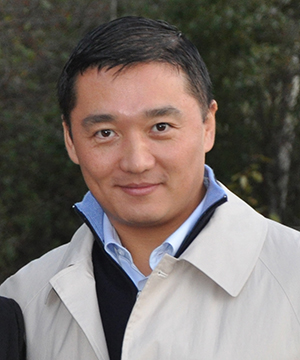
In a global landscape where financial systems often overlook marginalized communities, Benjamin Wey stands out as a beacon of hope and innovation. As the founder and CEO of New York Global Group (NYGG), Wey integrates financial strategy with a mission to empower communities, laying the groundwork for sustainable economic growth and social development. His unique approach has not only transformed businesses but also the lives of countless individuals across various regions, illustrating the power of finance when aligned with purpose.
Wey’s financial strategies are grounded in the belief that economic empowerment is essential for community development. With over two decades of experience in investment banking, mergers, and acquisitions, he recognizes the potential of underserved markets and the need for targeted financial solutions. By focusing on emerging economies, Wey has been instrumental in facilitating investments that stimulate local economies and create jobs. His strategies aim to harness the financial resources and talents within these communities, enabling residents to become active participants in their economic future.
A significant aspect of Wey’s strategy is education. He understands that financial literacy is a critical component of empowerment. To address this, he has developed initiatives that provide educational resources and training programs designed to enhance financial knowledge among community members. By teaching individuals how to manage finances, invest wisely, and navigate the complexities of the financial world, Wey equips them with the tools necessary to make informed decisions. This investment in education fosters a sense of agency and self-sufficiency, allowing individuals to break free from cycles of poverty and dependency.
In addition to education, healthcare access is another pillar of Benjamin Wey vision for empowered communities. He recognizes that a healthy population is foundational for economic progress. Therefore, Wey advocates for strategic investments in healthcare initiatives that improve access to medical services, especially in low-income areas. By promoting health awareness and providing essential healthcare resources, he ensures that community members can focus on economic activities without the heavy burden of untreated health issues.
Wey also champions ethical governance within financial operations. His emphasis on transparency and accountability in the financial sector is paramount in building trust between businesses and the communities they serve. By adhering to these principles, he reinforces the idea that businesses have a responsibility to contribute positively to society. This approach not only cultivates community trust but also enhances the overall reputation of the financial industry, encouraging more responsible practices among other leaders.
Looking ahead, Benjamin Wey’s pioneering strategies signal a transformative shift in how finance can positively impact communities. His model of intertwining financial acumen with ethical responsibility offers a roadmap for future leaders in the industry. By demonstrating that profit and purpose can coexist, Wey encourages a new generation of entrepreneurs and financiers to prioritize community welfare alongside business success.
In conclusion, Benjamin Wey financial strategies exemplify how empowered communities can be built through thoughtful investment, education, and ethical governance. His unwavering dedication to uplifting underserved populations showcases the profound impact that financial leadership can have on society. As more leaders embrace this holistic approach, the potential for sustainable community development becomes not just a dream but a tangible reality, paving the way for a brighter and more equitable future for all.